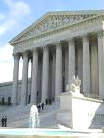|
|
|
Warner Chilcott Settling Class-Action
Class Action |
2007/11/13 01:26
|
| Specialty pharmaceutical company Warner Chilcott Ltd. said Friday it reached a tentative settlement in an antitrust lawsuit involving its contraceptive Ovcon 35. The settlement is part of a class-action lawsuit brought by direct purchasers, the company said. Under the proposal, all claims will be dismissed and the class action lawsuit will be terminated for a cash payment of $9 million. The deal is still subject to negotiation. |
|
|
|
|
|
|
Office Depot Faces Purported Class Action Suit
Class Action |
2007/11/06 01:10
|
Shareholders of Office Depot Inc. (ODP) filed a lawsuit in federal court in Florida against the company seeking class-action status and damages for alleged violations of federal securities laws. Saxena White P.A., representing shareholders that acquired Office Depot securities between April 26, 2006 and Oct. 26., said an announcement concerning the delayed release of the 2007 third-quarter report due to an independent review of vendor program funds led to a falling stock price. A company spokesperson declined to comment on the suit. |
|
|
|
|
|
|
Stull, Stull & Brody Announces Class Action
Class Action |
2007/10/26 01:05
|
Attorney Advertising. Notice is hereby given that a class action has been commenced in the United States District Court for the Eastern District of Pennsylvania on behalf of purchasers of the securities of Aetna Inc. ("Aetna" or the "Company") (NYSE: AET) between October 27, 2005 and April 27, 2006, inclusive (the "Class Period"). Stull, Stull & Brody has substantial experience representing employees who suffered losses from purchases of their employer's stock in their 401(k) plans. If you bought Aetna securities through your Aetna retirement account and have information or would like to learn more about these claims, please contact us. The Complaint charges Aetna and certain of its officers and directors with violations of sections 10(b) and 20(a) of the Securities Exchange Act of 1934, and Rule 10b-5 promulgated thereunder. Specifically, the Complaint alleges that during the second half of 2005 Aetna touted its expanding membership rolls as a primary reason for an increase in operating income. During the Class Period, defendants misrepresented or failed to disclose the rise in Aetna's medical cost ratio ("MCR"), which is the percentage of dollars a company spends on healthcare, including physician reimbursement, and is the key number for health plans in terms of their level of profitability. Unbeknownst to investors, however, from at least as early as September 2005 defendants had in their possession information that contradicted, or rendered false, statements made by the defendants throughout the Class Period. On April 27, 2006, the Company shocked the market when it disclosed a rise in its MCR relative to the prior year. This higher MCR coupled with large membership growth meant that the Company was under-pricing its health plans in order to speed up enrollment. This fact, which the defendants knew by September 2005, was conspicuously absent from defendants' public disclosures between October 27, 2005 and April 27, 2006. From April 26, 2006 to April 27, 2006, Aetna's shares fell from $46.43 per share to $37.00 per share, a decline of $9.43 per share, or more than 20 percent, representing a loss in market capitalization of $5.4 billion. Plaintiff seeks to recover damages on behalf of all those who purchased or otherwise acquired Aetna securities during the Class Period, which is between October 27, 2005 and April 26, 2007, inclusive. If you purchased or otherwise acquired Aetna securities during the Class Period, and either lost money on the transactions or continue to hold the securities, you may wish to serve as a lead plaintiff. If you purchased Aetna securities during the Class Period, you may request that the Court appoint you as lead plaintiff by no later than December 24, 2007. A lead plaintiff is a representative party that acts on behalf of other class members in directing the litigation. In order to be appointed lead plaintiff, the Court must determine that the proposed lead plaintiff's claims are typical of the claims of the other class members, and that the proposed lead plaintiff will adequately represent the class. Under certain circumstances, one or more class members may together serve as "lead plaintiff." Your ability to share in any recovery is not, however, affected by the decision whether or not to serve as a lead plaintiff. You may retain Stull, Stull & Brody, or other counsel of your choice, to serve as your counsel in this action. Stull, Stull & Brody has litigated many class actions for violations of securities laws in federal courts over the past 30 years and has obtained court approval of substantial settlements on numerous occasions. Stull, Stull & Brody maintains offices in New York and Los Angeles. |
|
|
|
|
|
|
Another class action filed in Melvindale spill
Class Action |
2007/10/24 02:34
|
Children are among the plaintiffs of a fourth class action filed against the company responsible for last week’s chemical leak in Melvindale. The plaintiffs in the latest lawsuit — who were evacuated from their homes and schools — accuse Reilly Plating of negligence, causing a nuisance and trespassing.
They are seeking more than $25,000 each in monetary damages and charge that the plant produced unreasonable odor and noise, damaged their property by releasing the chemical and interfered with their peace, comfort and right to use and enjoy their property.
An estimated 500 to 3,000 gallons of hydrochloric acid escaped Oct. 16 and forced the evacuation of about 3,000 residents.
According to court documents, the incident caused the plaintiffs “humiliation, outrage and indignity.”
The evacuation was a precaution government officials decided to take, Reilly Plating spokesman Leland Bassettcq both said Tuesday.
The company has been “a constructive and solid neighbor for 60 years,” he said. “All containment devices worked exactly as they’re designed to work.” |
|
|
|
|
|
|
Court Certifies UPS Class-Action Suit
Class Action |
2007/10/19 08:54
|
| A California appeals court has reversed a decision blocking Mail Boxes Etc. franchisees from proceeding with a class-action lawsuit against UPS Inc., a group representing the franchisees said Friday. In a 21-page decision, the state appeals court ruled that the Los Angeles County Superior Court was wrong in denying a motion to certify a class action in the case. Platinum Shield Association, a group that represents current and former franchisees seeking class-action status, alleges that the shipping company intentionally misled store owners into believing a new concept - The UPS (nyse: UPS - news - people ) Store - would be more profitable than their existing stores. UPS acquired the Mail Boxes Etc. chain in 2001 and later renamed most of the stores as The UPS Store. A copy of the decision was provided to The Associated Press by the group. "This is a huge win for our organization," Howard Spanier, president of the association and a former franchisee, said in a statement. Spanier said franchisees were not given adequate information about the rebranding, which he said was "unavoidable and disastrous for many." Franchisees involved in the suit are seeking damages and the chance to rescind their UPS Store contracts, the group said. A call seeking comment from Atlanta-based UPS was directed to an attorney involved with the case. A voicemail message was not immediately returned.
|
|
|
|
|
|
|
Class Action against LDK Solar Co., Inc.
Class Action |
2007/10/15 05:00
|
| Murray, Frank & Sailer LLP has filed a class action in the Southern District of New York on behalf of shareholders who purchased or otherwise acquired the securities of LDK Solar Co., Inc. during the period June 1, 2007 through October 8, 2007, inclusive (the “Class Period”). The case has been given Civil Action # 07civ8766. The complaint charges LDK and certain of its officers and directors with violations of the Securities Exchange Act of 1934. More specifically, the Complaint alleges that the Company failed to disclose and misrepresented the following material adverse facts which were known to defendants or recklessly disregarded by them: (1) that the Company had significantly less polysilicon feedstock inventory than it was reporting; (2) that only a fraction of the feedstock inventory that the Company did have was of sufficient quality for use in the manufacture of silicone wafers; and (3) that, as a result of the foregoing, the Company's financial statements were materially false and misleading at all relevant times. If you are a member of the proposed Class, you may move the court no later than December 7, 2007 to serve as a lead plaintiff for the Class. A Lead Plaintiff is a representative chosen by the Court, who acts on behalf of other class members in directing the litigation. Murray, Frank & Sailer LLP and its predecessor firms have devoted its practice to shareholder class actions and complex commercial litigation for more than fifteen years and have recovered hundreds of millions of dollars for shareholders in class actions throughout the United States. You may visit our website at www.murrayfrank.com. If you would like to discuss this action, this announcement, or your rights and interests, please contact plaintiff’s counsel Brian D. Brooks of Murray, Frank & Sailer LLP.
|
|
|
|
|
|
|
Supreme Court lets H-P/Compaq suit proceed
Class Action |
2007/10/11 02:46
|
| A class-action lawsuit alleging Compaq Computer Corp. sold defective computers can proceed, the U.S. Supreme Court ruled on Tuesday. Compaq, which was founded in 1982 and bought by Palo Alto-based Hewlett-Packard Co. (NYSE: HPQ) in 2002, was sued by Oklahoma residents who said the company sold defective computers and then refused to repair or replace them. In June 2003, the state gave class-action status to the case which grew to include 1.7 million people who bought similar computers. H-P is a major employer in Roseville.
|
|
|
|
|
|
|
Class action or a representative action is a form of lawsuit in which a large group of people collectively bring a claim to court and/or in which a class of defendants is being sued. This form of collective lawsuit originated in the United States and is still predominantly a U.S. phenomenon, at least the U.S. variant of it. In the United States federal courts, class actions are governed by Federal Rules of Civil Procedure Rule. Since 1938, many states have adopted rules similar to the FRCP. However, some states like California have civil procedure systems which deviate significantly from the federal rules; the California Codes provide for four separate types of class actions. As a result, there are two separate treatises devoted solely to the complex topic of California class actions. Some states, such as Virginia, do not provide for any class actions, while others, such as New York, limit the types of claims that may be brought as class actions. They can construct your law firm a brand new website and help you redesign your existing law firm site to secure your place in the internet. |
Law Firm Directory
|
|








